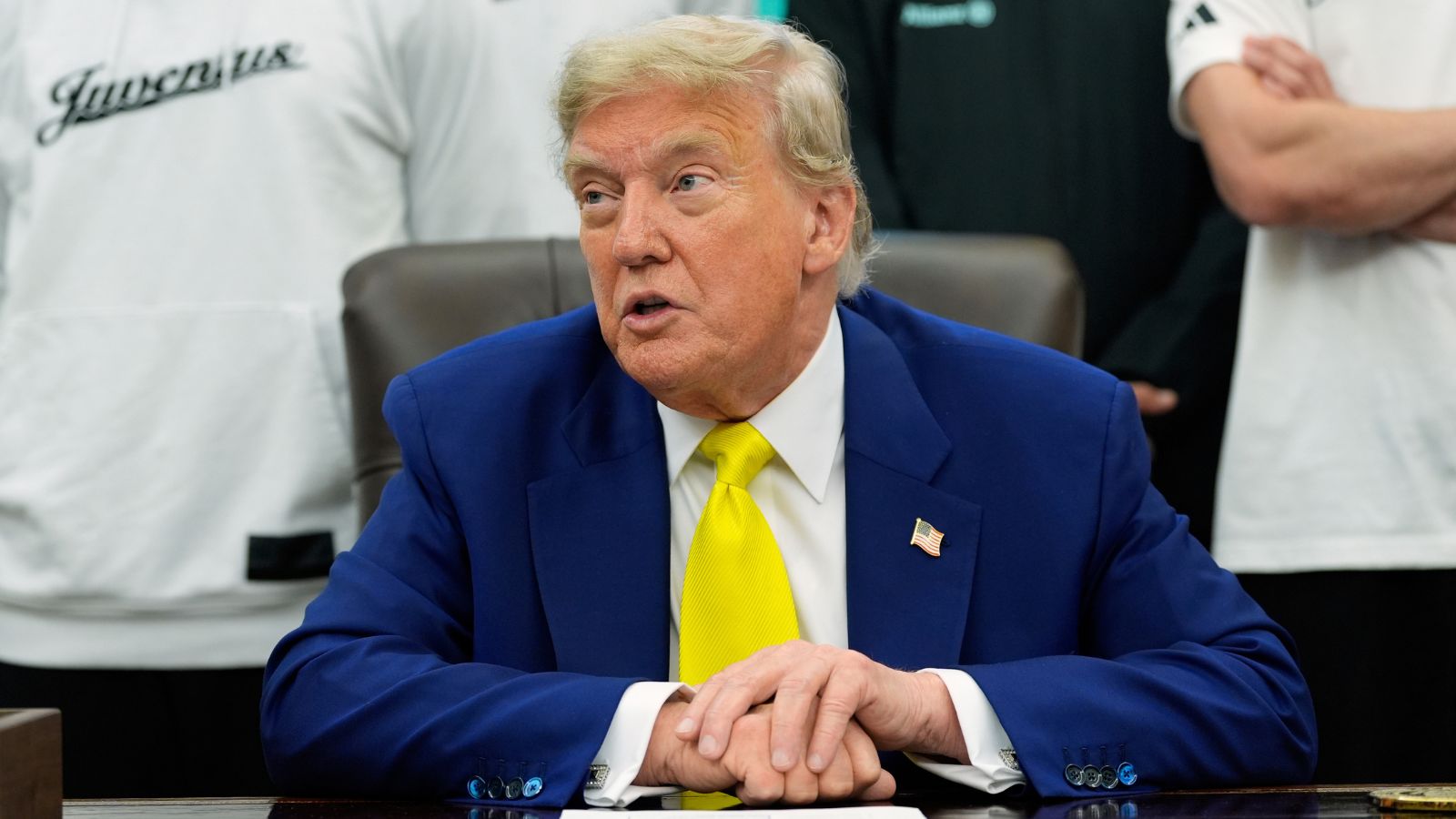Stay updated with the latest - Click here to follow us on Instagram
Why Trump’s ‘two weeks’ timeline for a decision on Iran is déjà vu for many
The pressing question now is whether the US is going to bomb Iran? No one knows and we may have to wait two weeks to find an answer to that question.
 Asked eight weeks ago whether he could trust Vladimir Putin of Russia, Trump replied: “I’ll let you know in about two weeks.” (AP Photo)
Asked eight weeks ago whether he could trust Vladimir Putin of Russia, Trump replied: “I’ll let you know in about two weeks.” (AP Photo)US President Donald Trump says he will be ready to make his decision about bombing Iran or not “within the next two weeks”. White House Press Secretary Karoline Leavitt offered this new timeline during her Thursday afternoon briefing, but some in the room couldn’t help but feel a sense of déjà vu, as the phrase sounded more than a little familiar.
“I have a message directly from the president, and I quote,” Leavitt said. “‘Based on the fact that there is a substantial chance of negotiations that may or may not take place with Iran in the near future, I will make my decision whether or not to go within the next two weeks.'”
As The New York Times noted, “two weeks” is one of Trump’s most favoured and most ambiguous units of time.
Sample this. Trump was asked eight weeks ago whether he could trust Russian President Vladimir Putin. Trump replied: “I’ll let you know in about two weeks.”
Over the years, the same timeframe has been deployed for tax plans, health care policies, evidence of conspiracy theories, the fight against ISIS, the reopening of coal mines, and infrastructure announcements — all of which he promised to clarify “in about two weeks.”
As NYT puts it, “It is a slippery thing, this two weeks — not a measurement of time so much as a placeholder. Two weeks for Trump can mean something, or nothing at all. It is both a yes and a no. It is delaying while at the same time scheduling. It is not an objective unit of time, it is a subjective unit of time. It is completely divorced from any sense of chronology. It simply means later. But later can also mean never. Sometimes.”
The pressing question now is whether the US is going to bomb Iran? No one knows and we may have to wait two weeks to find an answer to that question.
A reporter tried to pin down the timeline, reminding the press secretary of Trump’s repeated “two-week” promises, particularly in relation to Russia. “How can we be sure he’s going to stick to this one on making a decision on Iran?”
Leavitt’s answer? Essentially, that one situation can’t be compared with another. As NYT says, “This was really a question of metaphysics more than anything else.”
- 0122 hours ago
- 0223 hours ago
- 0323 hours ago
- 041 day ago
- 0523 hours ago































